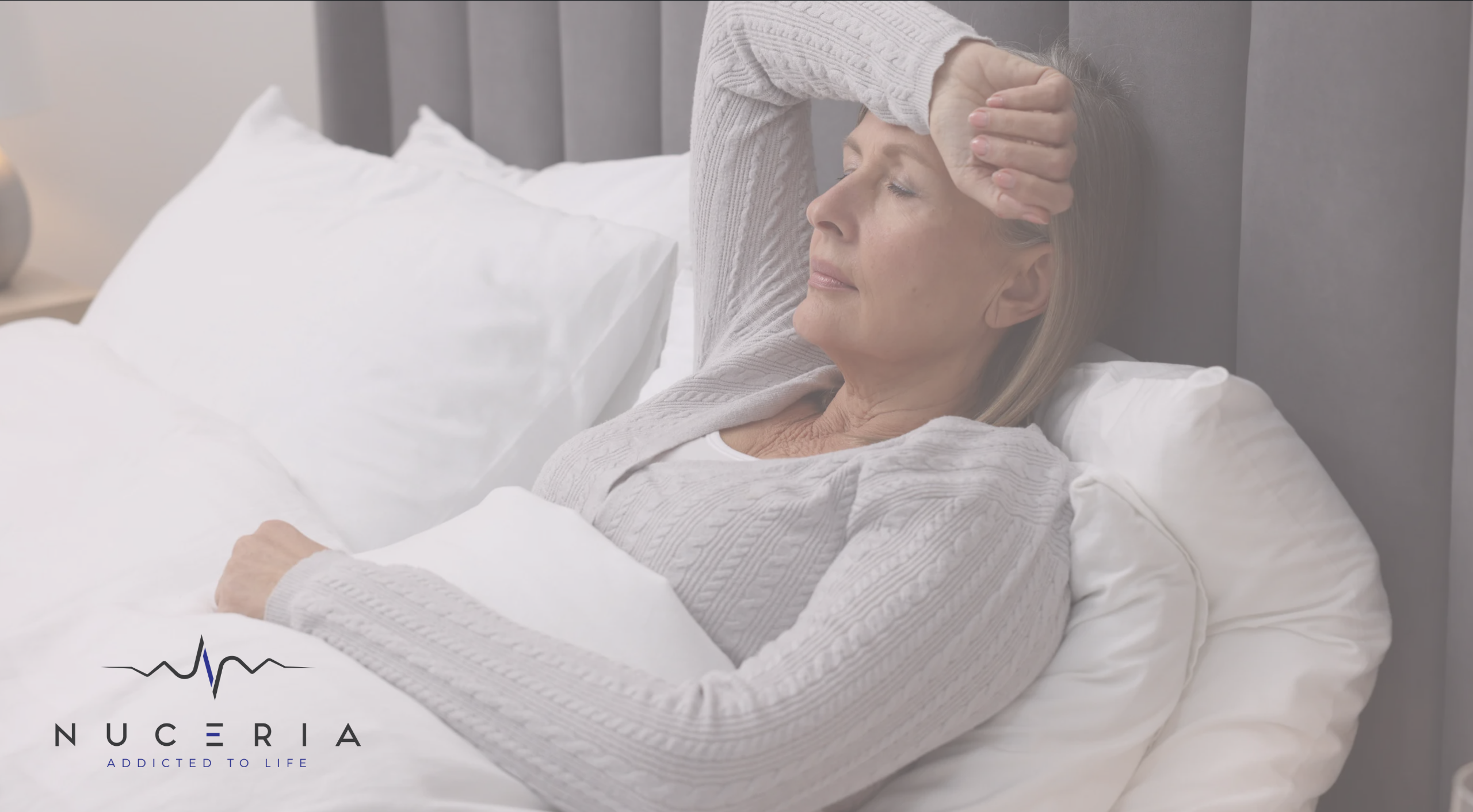Menopause and Sleep Quality: Strategies for Better Rest
Menopause often disrupts sleep, causing issues like night sweats and insomnia. These sleep problems arise due to hormonal changes, but you can take steps to improve your rest during this phase of life.
How Menopause Affects Sleep
Menopause brings several changes that can interfere with your sleep:
- Night Sweats and Hot Flashes can cause frequent awakenings during the night.
- Mood Swings and Anxiety: Variations in hormone levels can impact your emotional state, which may make it more difficult to drift off to sleep and remain asleep.
- Insomnia: Many individuals experience difficulty falling asleep and staying asleep during menopause.
Effective Strategies for Better Sleep
Maintain a Regular Sleeping Routine: To stabilize your sleep rhythm, make it a habit to retire to bed and rise at the same time daily, including on weekends.
Develop a Restful Bedroom Atmosphere: Your sleeping area should be peaceful, dark, and silent. Consider employing blackout drapes and a sound machine for optimal tranquility.
Implement Relaxation Strategies: Techniques such as meditation, deep breathing exercises, and gradual muscle relaxation can help soothe your mind before sleep.
Partake in Consistent Exercise: Aim to be active for a minimum of 30 minutes on most days for better sleep. Steer clear of intense workouts before bedtime.
Watch Your Pre-Bedtime Diet: Refrain from heavy meals, caffeine, and alcohol before bed. Choose light, nutritious snacks instead.
Explore Hormone Replacement Therapy (HRT): Consult your doctor about HRT. It can help manage menopausal symptoms and improve sleep.
Benefits of Hormone Replacement Therapy (HRT) for Sleep
Hormone replacement therapy (HRT) offers several benefits for sleep quality during menopause:
- Alleviates Night Sweats and Hot Flashes: HRT stabilizes estrogen levels, reducing the frequency and intensity of night sweats and hot flashes.
- Improves Mood: By balancing hormone levels, HRT can ease mood swings and anxiety, contributing to better sleep.
- Restores Sleep Patterns: Regular use of HRT helps regulate your sleep-wake cycle and reduce insomnia.
Incorporating Cognitive Behavioral Therapy for Insomnia (CBT-I)
Cognitive Behavioral Therapy for Insomnia (CBT-I) is a structured program that can help manage sleep disturbances:
- Focuses on Thought Patterns: CBT-I enables you to identify and change negative thought patterns about sleep that may be contributing to insomnia.
- Behavioral Techniques: This therapy incorporates behavioral strategies, such as sleep restriction and stimulus control, to improve sleep quality.
- Proven Effectiveness: Research shows CBT-I can significantly enhance sleep quality and reduce insomnia symptoms in menopausal women.
Natural Remedies and Supplements
- Herbal Teas: Chamomile, valerian root, and lavender teas can help you relax and sleep better.
- Magnesium: This mineral can aid in muscle relaxation and enhance sleep quality. Consider supplements or magnesium-rich foods like leafy greens and nuts.
- Melatonin supplements are effective in regulating the sleep-wake cycle and improving sleep quality.
FAQs About Menopause and Sleep
Q: How long will sleep disturbances last during menopause?
A: The duration of sleep issues varies. Some women experience them for a few years, while others may face longer-term challenges.
Q: Are there specific foods that can improve sleep during menopause?
A: Yes, foods high in magnesium and tryptophan, such as bananas, almonds, and turkey, can promote better sleep.
Q: Do stress management techniques help with sleep quality?
A: Absolutely. Techniques like yoga, mindfulness, and deep breathing can significantly enhance sleep quality.
Q: What are the risks associated with HRT?
A: HRT can have risks, including a higher chance of blood clots and breast cancer.
Q: How can Cognitive Behavioral Therapy for Insomnia (CBT-I) help with menopause-related sleep issues?
A: CBT-I addresses the thought patterns and behaviors that contribute to insomnia, offering a structured approach to improving sleep quality, which
Request an appointment here: https://mynuceria.com or call Nuceria Health at (305) 398-4370 for an appointment in our Miami office.
Check out what others are saying about our services on Yelp: Wellness Center in Miami, FL.







